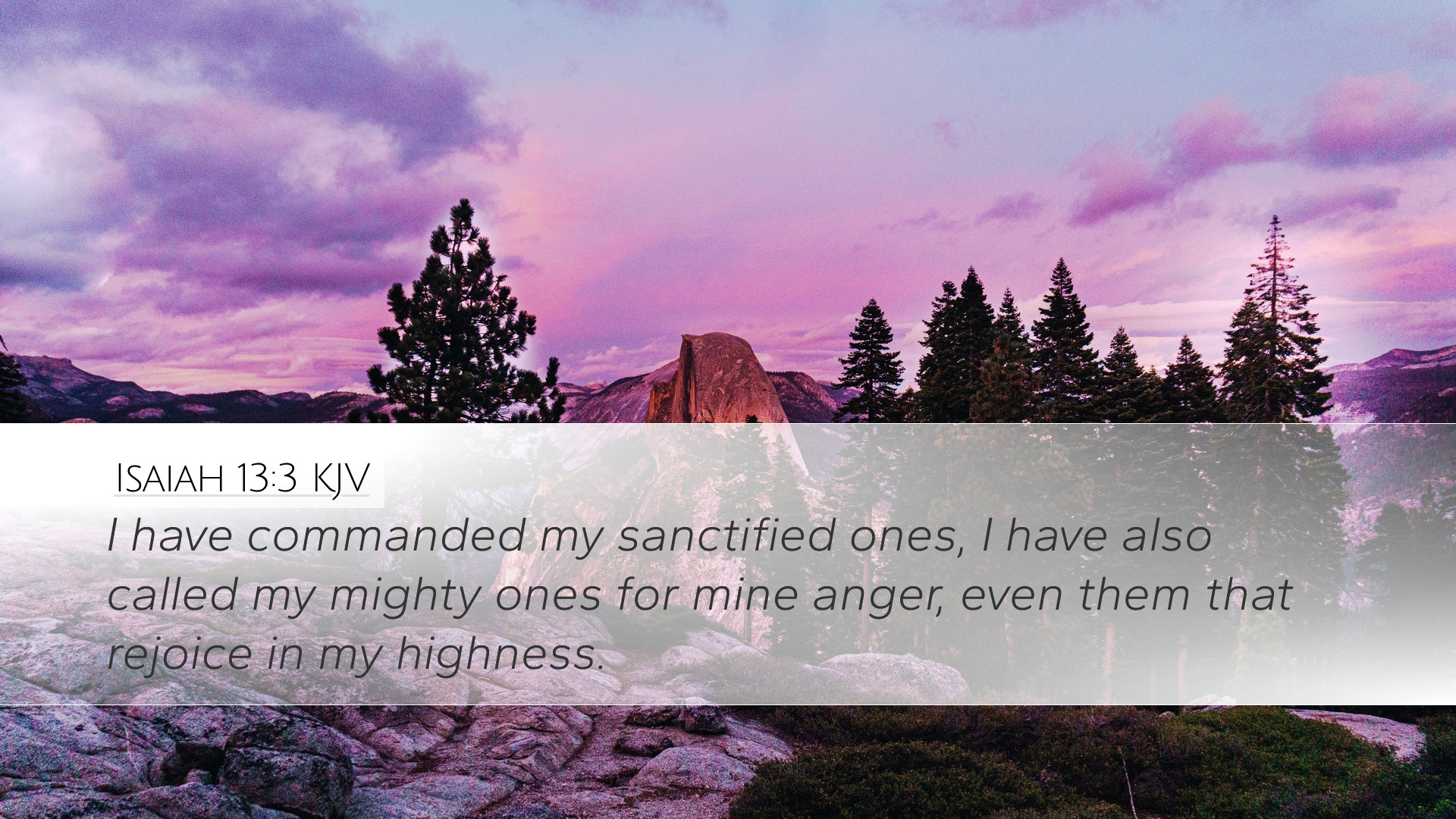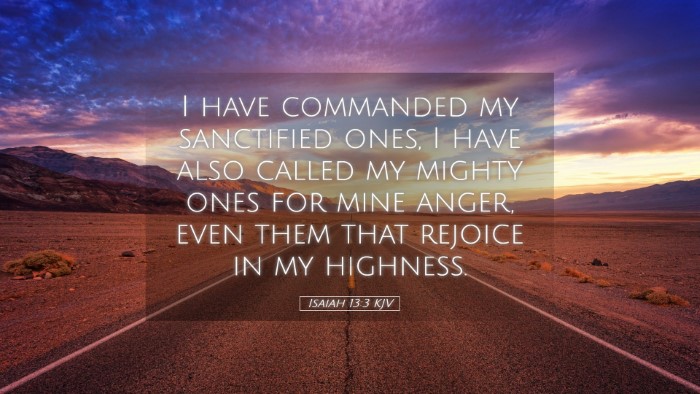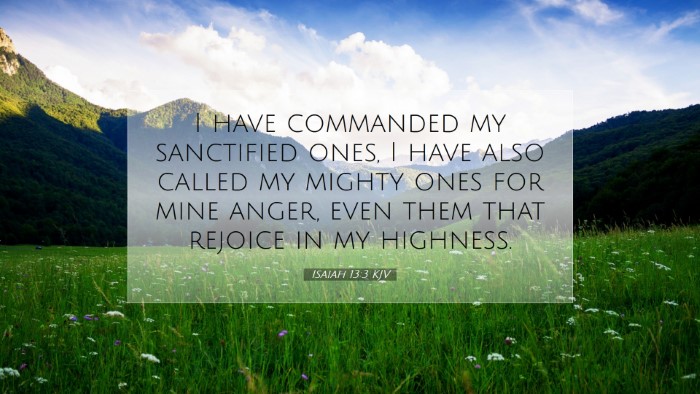Commentary on Isaiah 13:3
Isaiah 13:3 states: "I have commanded my sanctified ones, I have also called my mighty ones for mine anger, even them that rejoice in my highness."
Introduction
The verse encapsulates a powerful declaration from God regarding His agency in the unfolding events of history, especially in the context of His judgment against Babylon. Herein, we explore insights from renowned public domain commentaries like Matthew Henry, Albert Barnes, and Adam Clarke that impart meaningful understanding to pastors, students, theologians, and Bible scholars.
Exegesis of the Verse
1. Divine Command and Authority
Matthew Henry emphasizes that the phrase "I have commanded" reveals God's sovereign authority. He argues that God not only possesses authority over nations but also directs the actions of His chosen agents. This illustrates that nothing operates outside God's will; the term "sanctified ones" refers to those set apart for His purposes, implying an active role in divine judgment.
2. The Sanctified Ones
Albert Barnes identifies the "sanctified ones" as possibly referring to the Medes and Persians who would be used as instruments of God's judgment against Babylon. This highlights a theme of divine utilization of nations and individuals, prepared for specific purposes, reinforcing that God is actively involved in orchestrating historical events for His sovereign plan.
3. The Mighty Ones
Adam Clarke suggests that the "mighty ones" may consist of both earthly armies and spiritual entities. He interprets this to mean that God enlists forces which are powerful and capable, emphasizing His ability to invoke strength and might in pursuing His divine justice. Clarke invites the reader to also recognize how God mobilizes both the seen and unseen realms for achieving His will.
Theological Implications
1. Sovereignty and Human Agency
The verse raises profound questions regarding divine sovereignty versus human freedom. As noted by Matthew Henry, God’s command does not negate human responsibility but rather establishes the divine purpose behind human actions. This interplay is vital for theologians exploring the nature of God's governance over a world fraught with free will.
2. The Holiness of God’s Judgment
The term “anger” reminds the reader of God’s holiness. According to Barnes, God's wrath is not arbitrary but is a reaction to sin. The seriousness of divine anger manifests not from caprice but from divine righteousness, calling believers to understand the gravity of sin and the call to repentance.
3. Assurance of Divine Plan
For students of Scripture, the assurance present in God's command serves as a reminder of His control over chaos. Clarke's commentary illustrates that believers can trust in God's providence, even in turbulent times. This aspect manifests hope, serving to inspire faith among believers who navigate through life’s uncertainties.
Contextual Analysis
1. Historical Context
Isaiah prophesies during a time of impending Babylonian judgment. Henry notes that this serves both as a warning and as an encouragement to God's people who may be in despair about powerful nations oppressing them. The prophecy signifies that God sees and will act against injustice.
2. Literary Structure
The poetic structure of Isaiah 13 builds tension leading to this verse. Barnes mentions that verses like this one serve as climaxes in prophetic literature, propelling the narrative of judgment and hope. For scholars, understanding this literary technique enriches the interpretation of biblical prophecy.
Practical Applications
1. Encouragement in Ministry
Pastors should take heart from this passage, reflecting on God's faithful presence in guiding their endeavors. The assurance that God commands His “sanctified ones” encourages ministers to trust in God's provision of strength amidst challenges.
2. Call to Holiness
The emphasis on sanctification invites believers to evaluate their own lives. Henry's commentary insists on the necessity of being set apart for God's work. The pursuit of holiness is not merely a personal journey but a collective call to be instruments of righteousness in the world.
3. Assurance of God's Plan in Turmoil
In uncertain times, theologians can draw comfort from the reminder that God's plan is initiated and carried out by His chosen vessels. This truth affirms that even in chaos, God works towards a redemptive purpose.
Conclusion
Isaiah 13:3 stands as a profound reminder of God’s sovereignty, the significance of His chosen instruments, and the holiness of His actions in the world. The insights garnered from public domain commentaries help to illuminate the depth and breadth of this verse, offering rich theological and practical applications for all who engage with the text.


